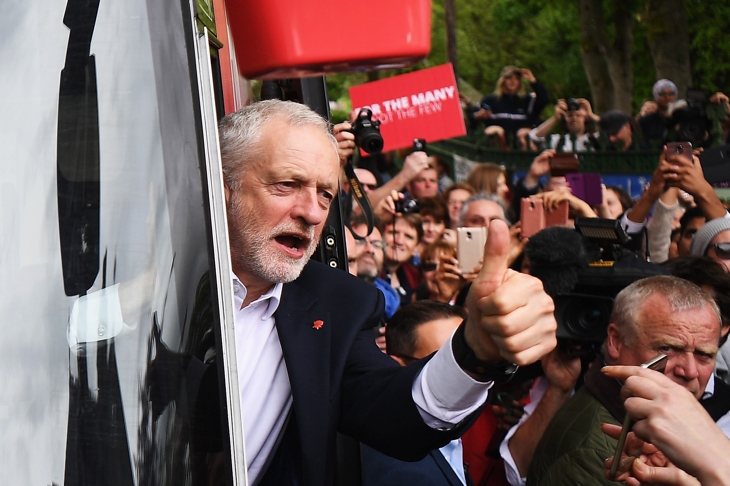Recent elections have followed the same format: the Conservatives positioning themselves as the party of low taxes while Labour feels obliged to make its own commitments in order to try to neutralise the issue. This year is different. One of the notable omissions from the Conservative manifesto is any firm promise not to jack up the rate of income tax or national insurance.
As expected, the Conservative manifesto does not repeat David Cameron’s ‘five year tax lock’ which committed the Conservatives not to raise the rates of income tax, national insurance and VAT during the lifetime of the Parliament just ended. Reducing taxes on businesses and individuals has been reduced to a mere ‘firm intention’. That would free a Conservative Chancellor – whom May refused to confirm would be Phillip Hammond should the Tories win the election – to jack up rates of national insurance, as he tried to in this year’s budget until it was pointed out to him that it would break Cameron’s promise of a ‘tax lock’. What the new manifesto does do, however, is commit a re-elected May government to stick to the previous commitment to raise the personal tax allowance to £12,500 and the threshold for the higher rate of tax to £50,000.
On VAT, the new manifesto commits the Conservatives not to ‘increase the level of VAT’. But does that mean the rate could not rise, the scope of VAT could not be widened or the overall tax take from VAT not increased? It all depends on what is meant by ‘level’.
Theresa May perhaps doesn’t feel the need to make gestures on tax rates owing to her commanding lead in the polls. And in any case with Corbyn promising a top rate of 50 per cent on anyone earning £123,000 or more a year, it is not hard for the Tories to claim the mantle of the low tax party.
Yet comparing the two manifestos does raise the intriguing possibility that those on up to £85,000 a year might feel more protected against higher tax bills under a Corbyn government than under a May one. Labour has at least made the promise that 95 per cent of taxpayers won’t pay more – while the Conservative manifesto makes no such promise.
Will that change how anyone votes? Probably not, but it does signify the end of a consensus that has ruled ever since Gordon Brown promised not to raise the main rates of income tax in 1997. In recent years, the 20 and 40 per cent rates have become more or less etched in stone. The consequence of this is that chancellors have had to be more devious in how they raise money. Brown at first turned to jacking up National Insurance instead, in the hope that taxpayers wouldn’t see it as an income tax, which of course it is.
The ending of this consensus does have one agreeable outcome: it will make it easier for future chancellors to effect the simplification of the tax system. Instead of dreaming up devious schemes to extract more money in complex ways they might feel freer simply to do as the Liberal Democrats are always promising to do and put an extra penny on income tax. Would taxpayers punish a government which did this? That is something we might find out in 2022.







Comments